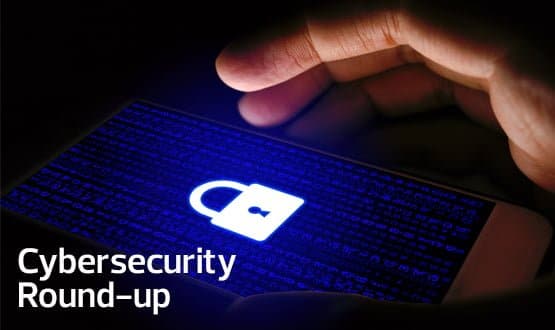Cyber security news round-up
- 2 March 2018

This month’s cyber security round-up takes a look at a number of cyber stories from outside the healthcare realm, including word that the US might be looking to replicate the UK’s National Cyber Security Centre and a new smartphone that lauds itself as being spy-proof.
Katim Phone dials up the privacy at Mobile World Congress
Mobile World Congress took centre stage in the smartphone world this week, and amongst the usual big-hitters, like Samsung and LG, were a handful of lesser-known entrants that piqued the interest of the Digital Health News team.
This includes the Katim Phone, which has been designed by creators DarkMatter to keep prying eyes at bay. The handset features enhanced encryption to keep data extra-secure, and comes with a ‘self-destruct’ feature that erases the phone’s encryption keys if it detects tampering. There’s also a ‘shield mode’ that completely disconnects power to the microphone and camera at the press of a button, in order to prevent any illicit eavesdropping.
The phone was teased in concept form last year, however DarkMatter has now made the handset commercially available to privacy-conscious buyers. That said, the UAE-based firm doesn’t advertise the price anywhere on its website, which suggests the Katim Phone costs considerably more than your typical smartphone.
UK lays blame on Russia for 2017 cyber-attack
The UK Foreign Office has blamed the Russian Government for a cyber-attack that caused widespread disruption in Ukraine and other parts of the world in June 2017.
The NotPetya ransomware attack initially targeted the Ukraine’s financial, government and energy infrastructure, before spreading to other businesses throughout Europe and in the US. Russian businesses were also affected, locking companies locked out of their IT systems.
It is now believed the Kremlin orchestrated the attack primarily for purpose of disruption, rather than financial incentive.
Foreign Office minister for cyber security, Lord Tariq Ahmad, said in a statement: “The attack showed a continued disregard for Ukrainian sovereignty. Its reckless release disrupted organisations across Europe costing hundreds of millions of pounds.
“The Kremlin has positioned Russia in direct opposition to the West yet it doesn’t have to be that way. We call upon Russia to be the responsible member of the international community it claims to be rather then secretly trying to undermine it.”
Report says UK emergency services at danger of massive cyber-attack
An analysis of the UK’s critical infrastructure has concluded that Britain’s emergency services are at risk of a “major” cyber-attack.
Carried out by threat intelligence provider Anomali, the UK Threat Landscape report suggests that the complex nature of the Britain’s healthcare industry presents “a number of points of potential weakness”
Commenting on the findings, Hugh Njemanze, CEO of Anomali, said: “It is clear that the UK’s emergency services need to take action to stop this heightened risk becoming a reality.
“One of the best means of preventing these attacks is ensuring that knowledge of cyber threats is shared between emergency services operators so all can ensure the resilience of their networks.”
US reportedly angling for an NCSC of its own
US government security agencies are reportedly looking to the UK for tips on how the US can defend itself against potential cyber-attacks.
According to the Financial Times, intelligence officials are particularly concerned about the US’s vulnerability to foreign state attackers, and are hoping to take a leaf of Britain’s book by adopting a model similar to the UK’s National Cyber Security Centre (NCSC).
Established in 2016 and headquartered in London, NCSC works with critical service providers as well as UK businesses to mitigate the threat of cyber-attacks and inform organisations on how better to protect themselves.
FT suggests that the US is keen to replicate efforts in the UK to establish a national cyber security strategy, which would put in place a common framework for keeping American organisations secure from cyber-threats.
Health data slip-ups on the up and up
New figures released by the Information Commissioner’s Office (ICO) reveal that health data breaches increased by 22% in the third quarter of last year.
Data acquired by the British Journal of Healthcare Computing show that the ICO received 800 reports of data security incidents in Q3 2017 – up 41% compared to the same period for 2016.
While the jump seems alarming, the ICO said that the looming deadline for GDPR compliance could be partly to blame for the increase in the number of incidents being reported.




